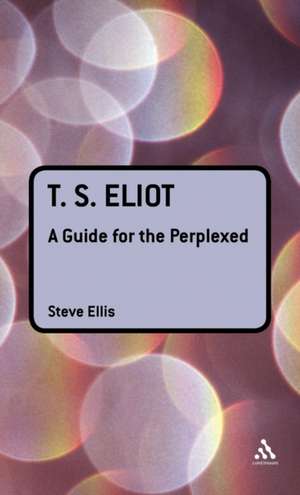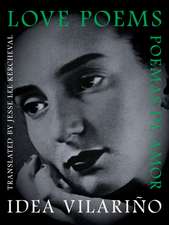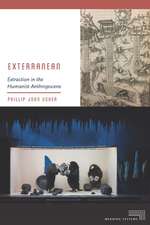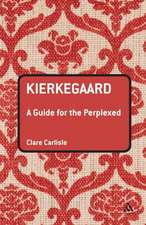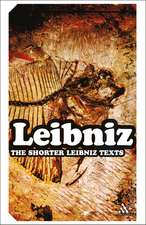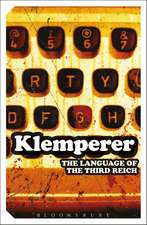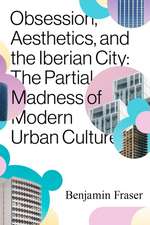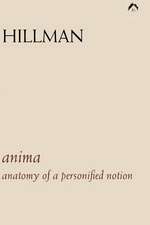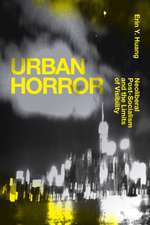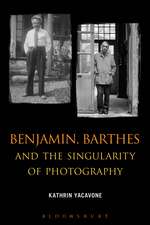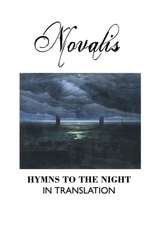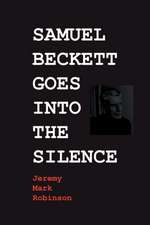T. S. Eliot: A Guide for the Perplexed: Guides for the Perplexed
Autor Professor Steve Ellisen Limba Engleză Hardback – 24 iun 2009
| Toate formatele și edițiile | Preț | Express |
|---|---|---|
| Paperback (1) | 146.78 lei 6-8 săpt. | |
| Bloomsbury Publishing – 24 iun 2009 | 146.78 lei 6-8 săpt. | |
| Hardback (1) | 595.17 lei 6-8 săpt. | |
| Bloomsbury Publishing – 24 iun 2009 | 595.17 lei 6-8 săpt. |
Din seria Guides for the Perplexed
- 14%
 Preț: 164.68 lei
Preț: 164.68 lei - 14%
 Preț: 163.34 lei
Preț: 163.34 lei - 14%
 Preț: 179.10 lei
Preț: 179.10 lei -
 Preț: 145.10 lei
Preț: 145.10 lei - 14%
 Preț: 133.15 lei
Preț: 133.15 lei -
 Preț: 166.82 lei
Preț: 166.82 lei - 14%
 Preț: 170.50 lei
Preț: 170.50 lei - 24%
 Preț: 150.50 lei
Preț: 150.50 lei - 8%
 Preț: 145.90 lei
Preț: 145.90 lei -
 Preț: 178.12 lei
Preț: 178.12 lei - 15%
 Preț: 163.01 lei
Preț: 163.01 lei - 14%
 Preț: 165.03 lei
Preț: 165.03 lei - 8%
 Preț: 157.75 lei
Preț: 157.75 lei - 14%
 Preț: 164.93 lei
Preț: 164.93 lei - 14%
 Preț: 164.76 lei
Preț: 164.76 lei - 22%
 Preț: 164.31 lei
Preț: 164.31 lei - 9%
 Preț: 156.88 lei
Preț: 156.88 lei - 15%
 Preț: 162.99 lei
Preț: 162.99 lei - 22%
 Preț: 565.55 lei
Preț: 565.55 lei - 13%
 Preț: 256.49 lei
Preț: 256.49 lei - 14%
 Preț: 163.87 lei
Preț: 163.87 lei - 19%
 Preț: 158.90 lei
Preț: 158.90 lei - 19%
 Preț: 170.25 lei
Preț: 170.25 lei - 22%
 Preț: 595.65 lei
Preț: 595.65 lei -
 Preț: 215.33 lei
Preț: 215.33 lei - 22%
 Preț: 712.64 lei
Preț: 712.64 lei - 14%
 Preț: 164.13 lei
Preț: 164.13 lei - 14%
 Preț: 164.76 lei
Preț: 164.76 lei - 14%
 Preț: 145.10 lei
Preț: 145.10 lei - 14%
 Preț: 144.83 lei
Preț: 144.83 lei - 22%
 Preț: 595.32 lei
Preț: 595.32 lei - 20%
 Preț: 190.50 lei
Preț: 190.50 lei - 14%
 Preț: 176.25 lei
Preț: 176.25 lei - 14%
 Preț: 163.08 lei
Preț: 163.08 lei - 22%
 Preț: 567.17 lei
Preț: 567.17 lei - 20%
 Preț: 177.77 lei
Preț: 177.77 lei - 22%
 Preț: 770.86 lei
Preț: 770.86 lei - 14%
 Preț: 163.96 lei
Preț: 163.96 lei - 22%
 Preț: 946.89 lei
Preț: 946.89 lei - 14%
 Preț: 145.01 lei
Preț: 145.01 lei - 20%
 Preț: 176.25 lei
Preț: 176.25 lei
Preț: 595.17 lei
Preț vechi: 692.06 lei
-14% Nou
113.90€ • 118.19$ • 95.20£
Carte tipărită la comandă
Livrare economică 17-31 martie
Specificații
ISBN-10: 1847060161
Pagini: 180
Dimensiuni: 138 x 216 x 18 mm
Greutate: 0.34 kg
Editura: Bloomsbury Publishing
Colecția Continuum
Seria Guides for the Perplexed
Locul publicării:London, United Kingdom
Caracteristici
Cuprins
Abbreviations and editions of Eliot's works used in the textIntroduction: Eliot's poetry and the use of Eliot's criticism1. The early poetry and prose2. From The Waste Land to 'The Hollow Men' 3. 'Ash-Wednesday' and the writing of the 1930s4. Four QuartetsConclusion: new Eliots for old?Further Reading NotesBibliographyIndex
Recenzii
"Among the innumerable Eliot guides on the market, this is the one to start with. Avoiding the all too common approaches to this notoriously perplexing poet - allusion hunting and step-by-step explication - Steve Ellis unlocks the poetry with Eliot's own extensive prose writings as his main key. The result is illuminating for beginner and Eliot aficionado alike. The binary opposites at the centre of Eliot's oeuvre, tradition versus innovation, conservative versus radical, 'ideal' versus actuality, belief versus scepticism, are addressed with freshness and clarity. Ellis traces both the continuities and contrasts running through Eliot's poetic development. He deals deftly with important influences, Laforgue, Baudelaire, Dante, in accounts of the poetry full of original insight and argument, while efficiently familiarising newcomers with critical cruxes and contentious issues (misogyny, anti-semitism). He has particularly perceptive things to say about the development of Eliot's poetic style, from the 'witty' to the deliberate, from the self-possessed to the ascetic. There are many other things to admire in this guide, but in particular all Eliot scholars will henceforth need to take account of Ellis's persuasive argument about the thorny issue of the relationship between The Waste Land and its 'Notes'." - Dr Gareth Reeves, Durham University, UK
Descriere
T. S. Eliot is one of the most celebrated twentieth-century poets and one whose work is practically synonymous with perplexity. Eliot is perceived as extremely challenging due to the multi-lingual references and fragmentation we find in his poetry and his recurring literary allusions to writers including Dante, Shakespeare, Marvell, Baudelaire, and Conrad. There is an additional difficulty for today's readers that Eliot probably didn't envisage: the widespread unfamiliarity with the Christianity that his work is steeped in. Steve Ellis introduces Eliot's work by using his extensive prose writings to illuminate the poetry. As a major critic, as well as poet, Eliot was highly conscious of the challenges his poetry set, of its relation to and difference from the work of previous poets, and of the ways in which the activity of reading was problematized by his work.
